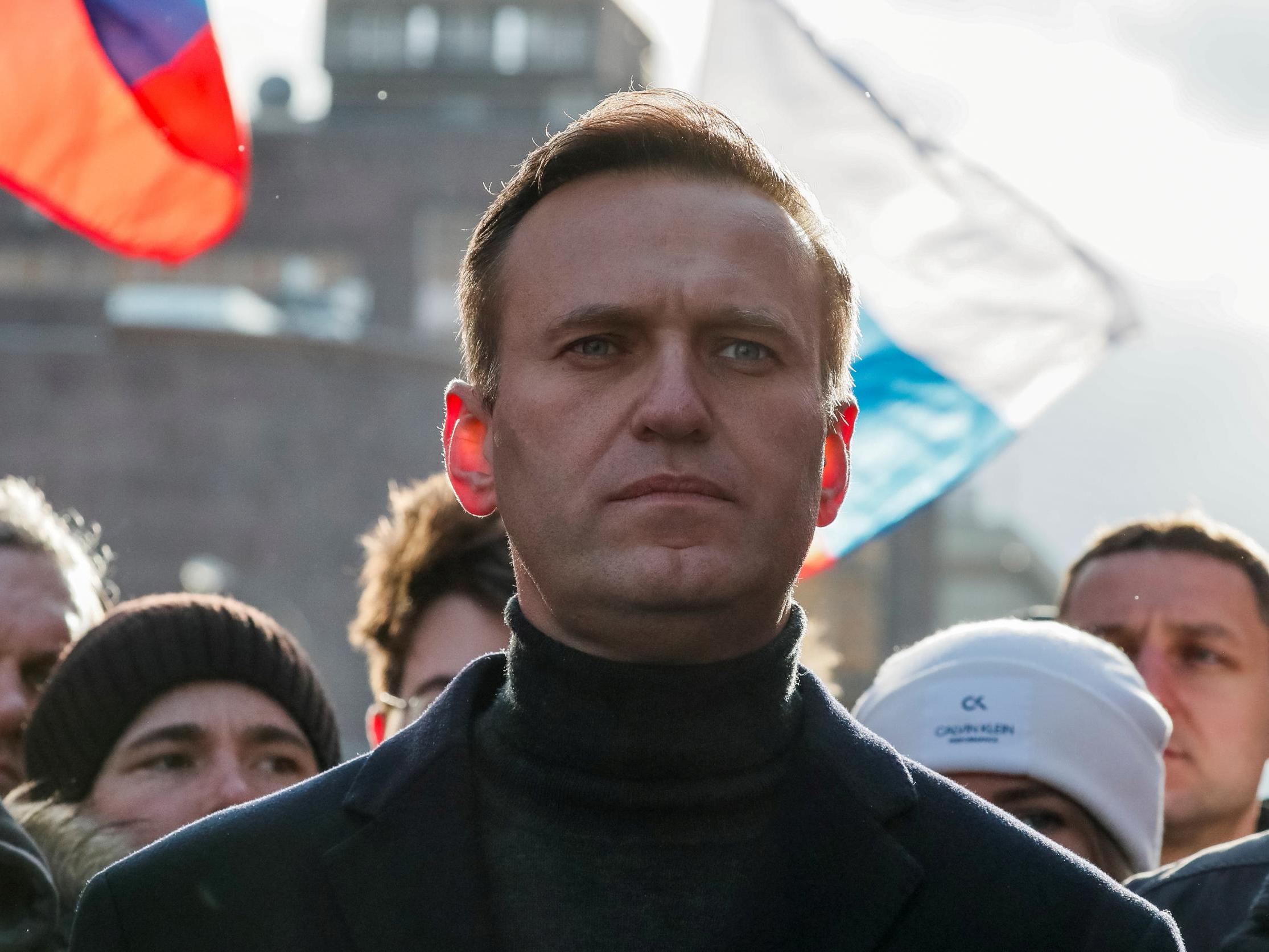Novichok poisoning: No 10 increases pressure on Russia over alleged Navalny incident
Kremlin critic remains in coma in Germany after falling ill on flight

Downing Street has stepped up pressure on Russia over the alleged Novichok poisoning of Kremlin critic Alexei Navalny, warning that there will be "severe consequences" for those responsible.
Foreign Secretary Dominic Raab has urged Moscow to come clean over the attack and will discuss what actions to take with his German counterpart Heiko Maas on Thursday, with No 10 not ruling out sanctions or fresh expulsions of diplomats.
Boris Johnson has described the suspected deployment of the same chemical weapon used in the 2018 Salisbury poisonings as "outrageous" and vowed to ensure "justice is done".
The prime minister's official spokesman said: "We are committed to working with Germany, allies and international partners to demonstrate that there are severe consequences to the use of banned chemical weapons," the spokesman said.
Pressed on whether sanctions could be imposed on Russia or diplomats expelled, the spokesman did not explicitly blame Moscow and said he would not "pre-empt what might happen next".
He said the Organisation for the Prohibition of Chemical Weapons would play a key role in investigating what he described as an "attempted murder" and said the UK had offered support to the German investigation.
OPCW director-general Fernando Arias said the organisation was "ready to engage" on the case.
“Under the Chemical Weapons Convention, any poisoning of an individual through the use of a nerve agent is considered a use of chemical weapons," said Mr Arias.
"Such an allegation is a matter of grave concern. States parties to the Chemical Weapons Convention deem the use of chemical weapons by anyone under any circumstances as reprehensible and wholly contrary to the legal norms established by the international community. The OPCW continues to monitor the situation and stands ready to engage with and to assist any states parties that may request its assistance.”
It is thought likely that the Navalny case was discussed when Mr Johnson and Mr Raab met US President Donald Trump's son-in-law and senior adviser Jared Kushner in London. The opposition politician and anti-corruption investigator fell ill on a flight back to Moscow from Siberia on 20 August and was later transferred to Berlin for treatment, where he remains on a ventilator in intensive care.
On Wednesday, German Chancellor Angela Merkel said Mr Navalny was the victim of "attempted murder by poisoning" with Novichok and added that the aim was to "silence" the opponent of Russian President Vladimir Putin.
Britain has long accused Russian operatives of using the Soviet-era poison on Sergei Skripal, the former double agent targeted in the 2018 attack in Salisbury, Wiltshire.
In response, Mr Johnson as foreign secretary helped corral a wave of expulsions of Russian diplomats across the EU and US after Britain told 23 envoys to leave.
Mr Skripal and daughter Yulia were two of five people exposed to the substance in Wiltshire, both spending weeks in hospital recovering.
But Dawn Sturgess, 44, of Amesbury, Wiltshire, died in July that year after coming into contact with a perfume bottle thought to originally contain the poison, while her partner Charlie Rowley spent nearly three weeks in hospital.
Wiltshire Police Detective Sergeant Nick Bailey was also exposed to the substance while responding to the attack, and almost died.
Sharing Mr Johnson's tweet calling for justice, the officer said: "I have so much that I want to say about this tweet. But I can't, and I won't."
The Prime Minister's spokesman again urged the suspects - two alleged agents from the GRU military intelligence service - to return to the UK to face justice.
“The use of Novichok nerve agent on British soil was a sickening and despicable act,” said the spokesman. “The prime minister’s thoughts are with the victims and families, who will be outraged that this chemical weapon has been used again.
“We remain determined to deliver justice for what happened at Salisbury.”
Mr Raab has said Russia has "a clear case to answer" over Mr Navalny's poisoning, with tensions between the UK and Russia already high after Britain accused Moscow of trying to interfere in the 2019 general election.
Additional reporting by Press Association
Subscribe to Independent Premium to bookmark this article
Want to bookmark your favourite articles and stories to read or reference later? Start your Independent Premium subscription today.

Join our commenting forum
Join thought-provoking conversations, follow other Independent readers and see their replies